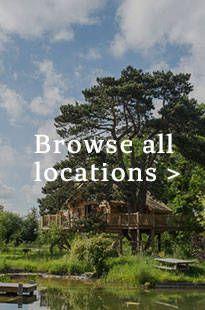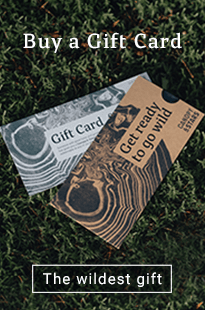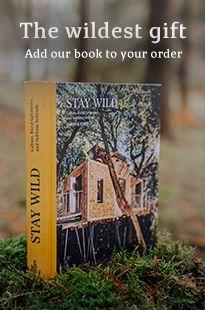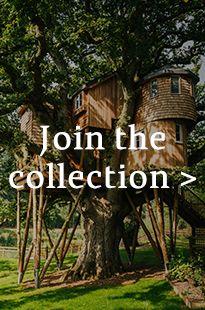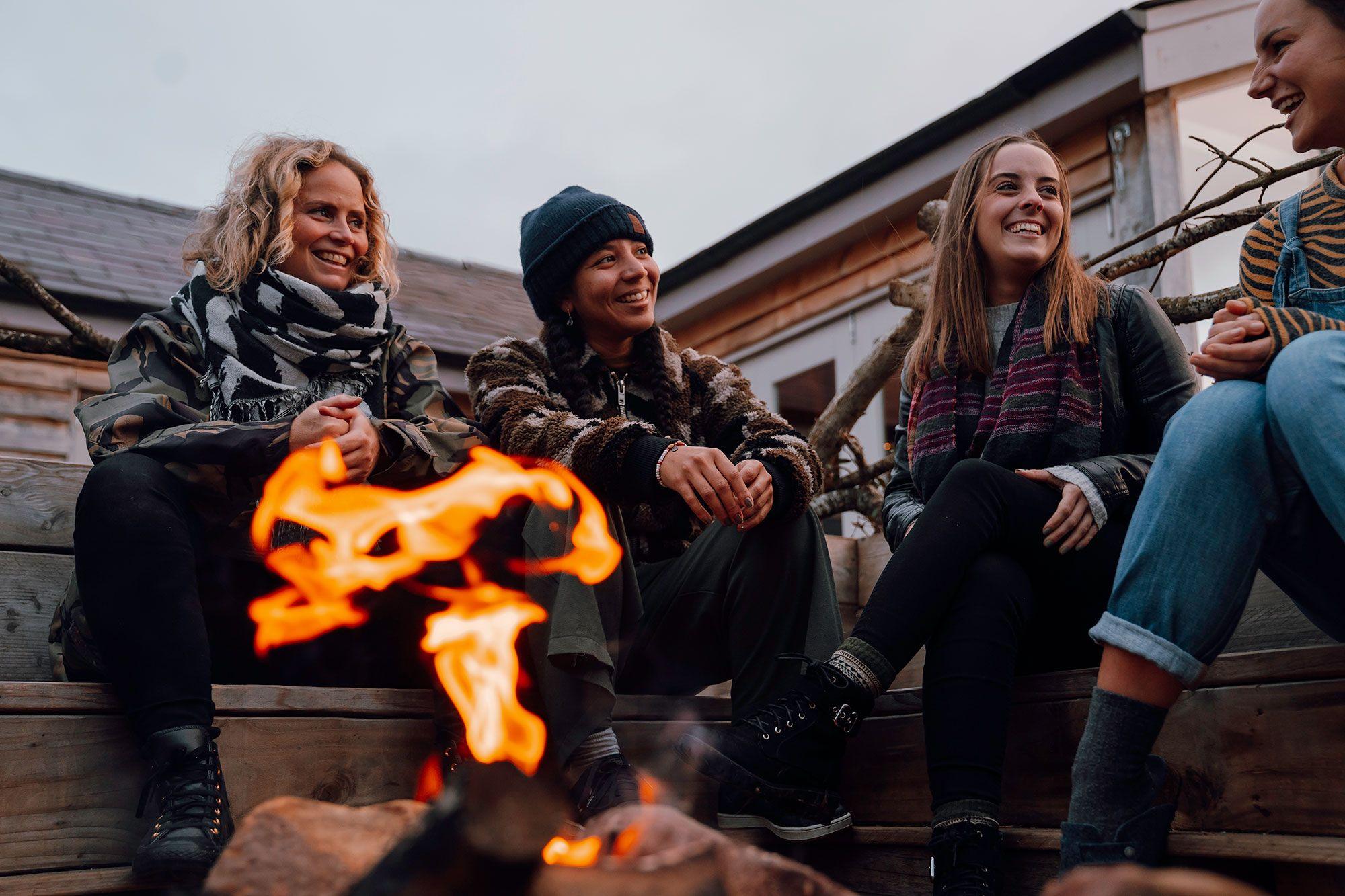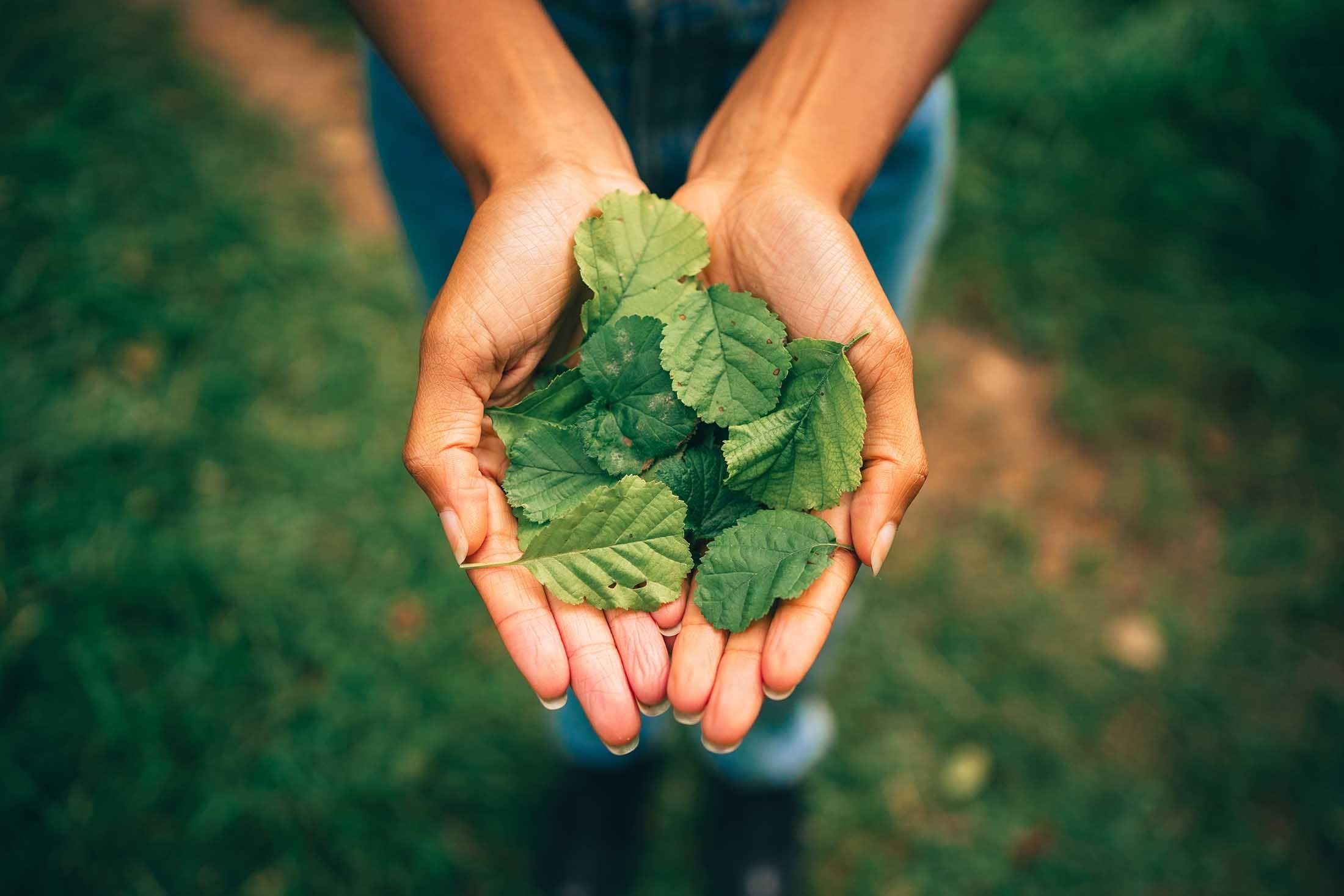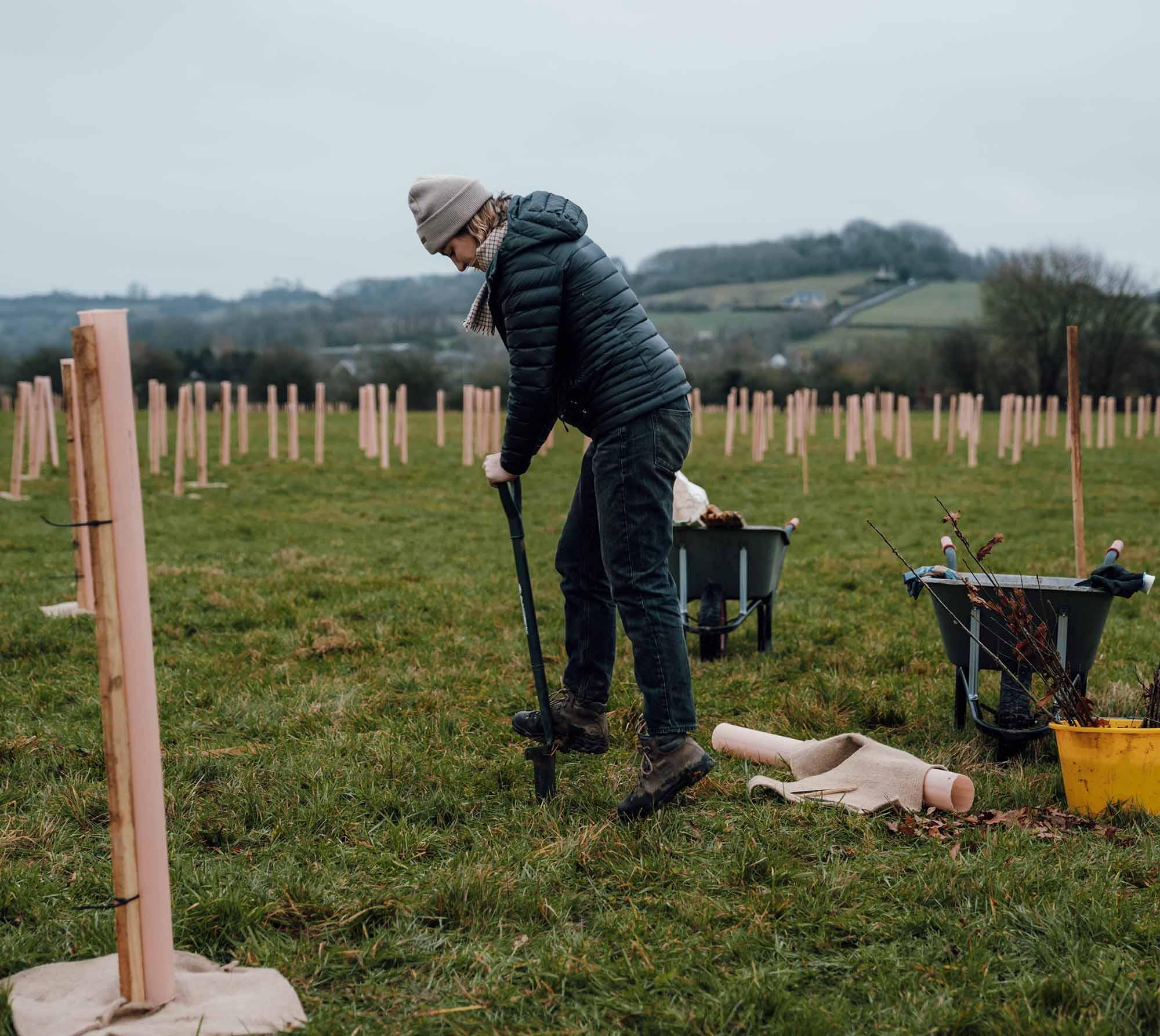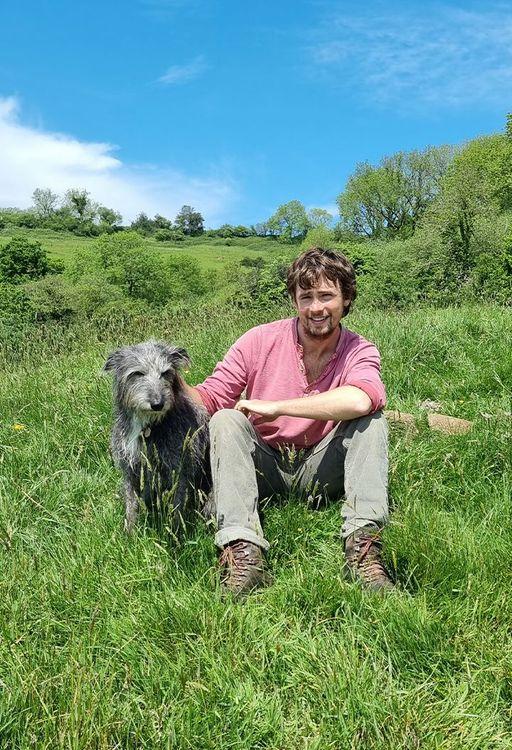
A Life More Wild – Series 4, Episode 5
Julius Roberts
Julius Roberts on nature-first farming and looking his food in the eye
Julius Roberts was a drained, exhausted London chef. When suppliers would come to his restaurant and tell him about the produce, they’d grown and reared, he couldn't help but notice how happy and healthy they looked. So he took a huge leap of faith.
Being a farmer is hard work. And there's this great quote by John Steinbeck which is: “What good is the warmth of summer, without the cold of winter to give it sweetness?” And I've really taken that on, like the bad days make the good days feel so great.
I'm Chris from Canopy & Stars. This is A Life More Wild. Join Julius and his many animals for his morning rounds on the farm, as he discusses nature-first farming, getting bored of tomatoes, and literally facing up to where his food comes from.
I’m Julius and we're here on my farm, I can take you on what is essentially my morning routine, checking on the animals, bit of feeding, eggs for breakfast and enjoy the morning.
All the apple blossoms out, the birds are singing. Swallows are back and coming to nest. And I'm just here with my chickens, who, they're not a fan of their daily food, it's very good for them food, and they like a kind of treat every morning.
Chick Chick Chick Chick
Chick Chick Chick Chick
We have very wild, just opening the gate for you there, we have very wild, rambly natural hedges, so very unmaintained farm. We're all about farming, we call it nature-first farming. So it's not that we're also looking after nature, it's actually that nature is our main priority. And we're using the animals to help nature and as you can see, a lot of the farm is ungrazed and very wild and providing a home to much more than just my goats and sheep. We've got incredible biodiversity here, and we’re forever on a mission to increase that. That's probably where our biggest source of joy is. And that purpose of the farming. What I might do is, usually my dogs would be with me, it's a bit of a shame for them not to have their morning walks. If we just take a U-turn here and grab the dogs.
So I grew up more in London actually, and went school there. But we always had my granny in the countryside in Suffolk, which was a real, every Christmas, every Easter, every bank holiday with it Granny and she was incredible cook. Loved foraging. Was always making jams, cordials, pâtés from wild animals. You know, she was a pretty cool woman. And it was her that very much inspired me to, here just duck quite low – we’re, it’s sort of our bee’s flight path and they always get stuck in your hair. So it's a good place to just go quite low and then just come left.
And yeah, we'd spend all our bank holidays, Easter's, Christmases, in the country at Granny's, where we'd have these amazing feasts, she loved bringing the family together to eat – very European, she was Dutch and had that very European attitude towards food that was completely part of her soul. And I really absorbed that. I loved the way it brought our family together and the kind of conversation that it would create, and just the deliciousness she was a real like wizard in the kitchen.
So I'd been studying sculpture, got back to London, having done quite an, a sort of experimental, abstract sculpture degree and I couldn't as much as I wanted to be an artist – I couldn't really see that path panning out, you know. Just didn't look like it would work. So Mum encouraged me to get a job in a local brasserie, which I went for, got into the cooking world and really loved it. It is like the learning I've had here. The learning you get in a restaurant is incredible. And these chef's, there's so much pride in cooking in these chef's, they absolutely love their career. It's so tough, and so relentless, that you do have to be so in love with it, sadistically so, to be able to carry on.
So began to very much feel myself, whether I was working in a windowless kitchen, 80 hours a week. And it does take its toll, I was gray and pallid and tired and you're not particularly well as Chef because you do push so hard. And that's what inspired me to leave. We'd had all these producers turning up at the restaurant every day with their crates of like stunning produce, telling us the stories of how they'd grown it, whether that was a lamb reared on a regenerative farm or a beautiful box of artichokes or tomatoes and I thought you know what, their lives just sounds so great. They're all brown, twinkly eyed, healthy, happy and inspired by what they do. And as much as I love the restaurant and working with these guys, like I don’t really want to do this forever. So I decided to make this huge leap of faith, moved to the countryside, bought four pigs, was living near my granny in Suffolk and that's what began this journey.
I suppose the reason we moved from Suffolk to Dorset was, Suffolk felt quite close to London. And you really can feel London, in Suffolk or at least where we were. We've got lots of family down here. My cousins all grew up here. I've got aunties and uncles in Bath. So, West seemed like a lovely place to grow, go, great family and friends down here. And I mean, the best thing about Dorset is it's just so rural, there's not a quick train that gets here. It's a good three, three-hour drive from London, if not more, it's just a kind of lovely, nature, outdoors orientated County, that has nothing to do with London, nothing to do with that pace of life, it's just slower. Very much working with your hands down here. And I mean, you can, you can't see where we are. But I'm looking out across a seriously luscious green valley that is filled with nature, very loud birds, tonnes of flowers. I mean, there's a proper piece of paradise our farm here.
My relationship to food changed a lot. When you've looked an animal in the eye, when you've been there from the minute it was born, to that dies. And when you've seen just how clever, individual sensitive, instinctual they are, how similar they are to your dog or your cat makes you realize that the way they're eaten without any thought at all, kind of gluttonously. And so often, it's just so wrong. So I eat significantly less meat than I used to. It's always of an amazing quality. I'm a big believer that, eat way less. And with the money you save buy better. And then you're getting animals that have lived outside, they've lived a longer life. They've eaten what they were supposed to. Often, they’ll have been on farms that are kind of working with nature, rather than fighting against it. And it'll be much healthier for you. Everyone wins the planet, the animal and you.
I picked up seasonal eating at the restaurant, the restaurant was all about seasonality. And now that I grow my own produce. I know the work that goes into it, firstly, but I also know like ‘Why on earth would you eat asparagus in the winter from Mexico or South America, when we've got the best asparagus in the world in spring?’ Just wait. And that waiting makes it taste so much better. That apprehension, the enjoyment of that first spear when you've like actively missed an ingredient, is just so great. So I really adhere to that. That's probably my strictest rule. Wait for things to come back in season and enjoy them to the fullest. There's a great thing, like this chef Dan Barber. He says that he wants his chef to be sick of tomatoes by the end of summer, that they can't wait for pumpkins to come. And I tried to live by that.
We're the steepest point of the farm and I've been yabbering the whole way up the hill. But this is my, like sitting spot we're about to get to, kind of the apex of the farm. You can look out across the whole valley. You can see right the way to the sea. Yeah, I do this walk every day. Come and check my sheep, who are in the top field at the moment.
My sheep are Hebrideans, which is a Scottish breed of sheep from the Hebrides, which is these islands at the very north of Scotland. They're tough as nails. They're smaller, slower growing, very hardy, they know how to look after themselves. I think I made quite good choices when I got my animals, when I got into farming. They're all native, traditional, slower growing breeds who are much tougher than like, the more modern varieties of sheep, which are bred to just be fast growing, and come with a lot of ailments. These sheep I can kind of just leave to themselves. And they live very long lives because they grow much slower, which I like, modern sheep that you might get in the shops, you're getting a lamb that's four months old, five months old, my sheep lived to two years. So we don't eat lamb at all, really, here, we eat Hogget and mutton, which is slower grown. People think it's tough, but it's not, it’s just like knowing how to cook it and make sure it's been aged, once they've been killed.
This is the main source of the farm, like what gets the income, is my sheep. You have about 50/60 lambs a year that we sell as meat – which is tough. I love my sheep, and I go to the abattoir myself every single time and it never gets easier. It's a miserable day that weighs on me for weeks before and weeks after. But you know, it'd be easier to just eat someone else's sheep or someone else's animals or you know, just eat meat from the supermarket. But I'm a big believer that like my sheep have the best life possible. And if I don't eat meat at all, I should go through that pain of the end and look it straight in the eyes and own up to it and be aware of it. It's a real privilege being so close to your food as tough as it is.
It is quite an intensively farmed piece of land. This is dairy country, this part of Dorset, the grass is super lush, it rains a lot. The sun shines a lot. So it does grow very well. Sadly, it is taken up by quite a lot of intensive dairy farming, which is a tricky subject. Yeah, I think farming is a very noble profession. But the intensification of it has destroyed a lot of nature. And I do worry about that. Our farm doesn't necessarily create that much food, compared to intensive farm, but it does provide a lot of home for nature. And I think that's really important. And we need to find a new balance where, humans are being fed, but the food they're being fed doesn't cause as much damage and the animals live good lives. I think cows living inside their entire life being fed grass that's been cut and brought to them, used as essentially machines to just pump out milk, is not a great existence. And I, I would love that to change. Very tricky because the farmers work their asses off, they've been put in a very difficult place by the government and supermarkets and they've been working themselves to the bone for their entire lives generationally. So it's quite an they get a hard time for it. I think you've got to be very careful and support them, and encourage a change through hope and you know it making sense for them.
Eating seasonally is sort of, it's very second nature to me because I grow my own stuff, I you know, you can't eat chard until the chard has grown. If you're buying in the shops, you know, let's say you're in a supermarket, which I don't love, but that is how a lot of people eat and that's how I eat sometimes too.
Looking on the packets and seeing that something's been grown in England is a great way to eat seasonally, because that means it has to have been grown in the climate as now, and will have been transported to that shop pretty recently. Going to the markets, you just will have produce that has been grown at that time. Just knowing, you know, summer is courgettes, tomatoes, aubergines, chilies – make the most of them while they're around. Winter is turnips, potatoes, beetroot, carrots that have been stored. All the lovely cabbages, cavalo nero, Brussels, kales, all that kind of stuff. Spring is all the super green things – peas, asparagus, broad beans, lovely gem lettuces, artichokes.
Yeah, I don't know, it’s just like instinctive to me. But looking on the labels and buying things not in packets, because they're from a farmer’s markets, is a pretty good way to eat seasonally, and just I think getting in touch with all that stuff is so, so fun. Also, just growing your own at home, is a great way to start. I've got this beautiful farm and I couldn't be luckier, but you can grow anything on a windowsill, on a balcony, on your roof, on your doorstep. You know, buy some seeds, put them in some compost in a, in a pot, and it's very easy to grow something and you'll see, you know, when it's cold, that thing doesn't like to grow, when it's warm, it grows really well. It's kind of as simple as that.
I think the issue of the food industry is that it's being created around, you can have that whenever you want it. And that's not how food grows. And, you know, especially when it comes to meat, you know, meat, meat needs to go back to being a luxury, I think that's the biggest mistake we've made, is that we've got used to eating meat every day, three times a day, eggs for breakfast, bacon for breakfast, sausages for lunch, beef for dinner. And that just takes such a toll on the world. It takes, you know, as I said, it takes me 18 months to grow one, one lamb, one sheep. And they take up a lot of space, and they take a lot of energy, and they take a lot of work. And, and they also morally are a living, thinking, sensitive being. And they should be treated as such, to create a world where we can eat meat as much as we want. And as often as we like, it's had to be intensified. And that means animals living in barns away from nature, and the nature being sucked dry to feed them. And then not being that much room for other things which really matter like trees and birds and other species, which provide us with clean air, which provide us with lots of lovely birdsong and butterflies to look at and you know, all sorts of things.
I think the way we eat has got so big and so consumerist that it's taking over the world. And you know, a really sad stat that I know is that, the extinction rate, so there's a natural rate of extinction that happens across the world, but it's 1000 times what it should be. And that's because of us, in the space that we take up and our food takes up. And I think we need to just give a bit more room back to nature and the way to do that is to eat less meat. Is to eat better meat, is to eat seasonal veg. And yeah, and also not to waste food, that's a big thing that's gone wrong. I think it’s third of the food produced is wasted, which is a monumental amount. Monumental.
A really good way to think about it, is that we are lucky to have the food that we have, and it shouldn't be you know, it should still be, it should still be special. I think you should like, food is a luxury, there are people in the world who are starving to death and who struggle to just get water. Food needs to be thought of as special again, I think we need more, more connection to it, more love for it and more respect for where it came from. And more thought into that the importance of that.
Definitely lunchtime, so we've got to make our way back down the hill, across the ravine, and when they start hearing and seeing us, they're gonna make one hell of a fuss for their milk.
I’m just making the milk for my little goats and sheep, spreading milk everywhere… At the beginning bottle feeding next six/seven times, eight times a day, in really small amounts because they've got small stomachs then. Now they drink quite big bottles three or four times a day,
Lamb-y! See here’s the hen, oh there he is… Hello boy, how are you?
Come on then. Come on. Come on. Here’s Lamb-y, first in line, Turnip right behind and Radish at the back. Right okay okay. And it's a bit of a juggle because I try and do all three at once. So I always, here look, focus, focus. Radish!
(Goat bleating)
Goats and one hand, sheep in the other. Come here buddy.
(Suckling noises)
And then on the side of the big coop, I just open up and we've got some nice fresh eggs. And often when I come out and grab these in the morning, they'll still be warm. The best thing about fresh eggs is they're so easy to poach. If you crack a fresh egg into a pan of water, it will literally not change shape. That’s Turnip eating a hens feathers, about to get a peck for it.
This is Henny, we call her – not the most original name. But that six eggs, we get about six/seven eggs a day, which is hard to keep up with. Often the dogs have eggs for dinner as well, when we've got too many. And so in the mornings I do that routine we've just gone through, and I’ll finish by grabbing couple of eggs and having an egg on toast, or egg fried rice, or there's a lot of ways to have eggs when you have every day.
I’m a big believer that like cooking eggs always a race. You want hot toast that's not gone like too hard or soggy by the time you got the eggs cooked. You don't want to burn the toast, because you’re too distracted by the eggs, eggs have got to be right. I love the race of making breakfast.
This is special, these are the swallows that are just coming back. We have this duo swallows that nest in the back porch of the house every year. And we don't use the front door all spring just to make sure we don't scare them off. Blows my mind, an animal flying from Africa, that's come to nest in our porch.
Yeah, we're back where we started. Animals are all well. lambs fed. Eggs for us. Late today. Yeah, I mean that is an egg, from a hen who I feed every single day. I say hi to every single morning. I give her her oats. And she walks freely around the house, protected by the dogs. Eating all sorts of grubs and slugs and snails and flies, and produces very golden, delicious eggs for me to have for breakfast, circle of life.
While we can't all make the leap to running our own farms. Effective change to our eating habits can be as simple as cutting down. Seeing things like meat as a luxury and thinking more about where we buy our food. Next time. We're going from working with animals on the ground to taking flight and joining them in the air. In the company of Sasha Dench, aka The Human Swan. She'll be telling us about tracking birds across Russia in a paramotor, reindeer blood pancakes, and getting a warm welcome in the cold Arctic Circle.
Keep track of all Julius’s work on his website and follow us on Instagram to see behind the scenes footage from recordings and a few extra questions we asked each guest.
A Life More Wild is an 18Sixty production, brought to you by Canopy & Stars. Production by Clarissa Maycock. Our theme music is by Billie Marten.

